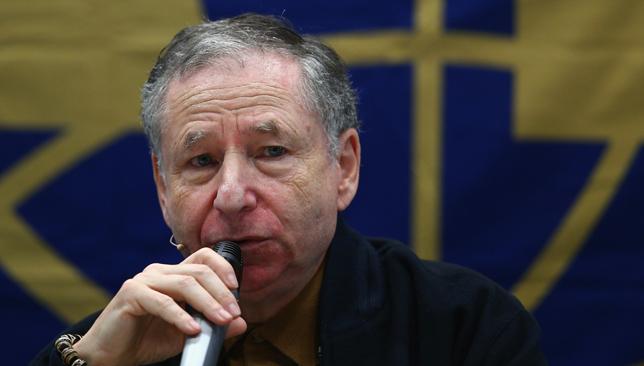
The FIA is set to impose new safety measures following what president Jean Todt has described as the “tragedy” of Jules Bianchi’s horrific accident in Japan on Sunday, which has left the Frenchman fighting for his life.
On Monday, Todt commissioned FIA race director Charlie Whiting to draw up a detailed report looking at the circumstances and cause of the incident in which Bianchi crashed into a recovery vehicle at Suzuka.
With that report handed to Todt yesterday, the bottom line according to Whiting is “nothing could have been done better” due to what was “a perfect storm” of conditions that led to the smash.
Whiting confirmed under double-waved yellow flag conditions, present at the time and when a driver is meant to slow considerably, Bianchi did scrub off some speed, although declined to state how much.
The 25 year old Frenchman, rather than spinning off track as occurred to Adrian Sutil in his Sauber a lap earlier, and whose car was being recovered, managed to catch his Marussia as it hit a patch of water.
That resulted in Bianchi spearing off track at a particular angle and in turn ramming into the recovery vehicle, sustaining injuries to his brain which have placed his life on the line.
At the Sochi Autodrom, Whiting showed video footage from the cameras placed at the scene. Whiting was able to confirm the correct safety signals were in place at the time, with no blame attached to any marshal as they all did their jobs correctly.
But as with any incident such as the one on Sunday, lessons can be learned, with the FIA to now consider imposing an automated speed limit on cars during double-waved yellow flag periods.
There is also the prospect recovery vehicles, such as the one seen at Suzuka, may in future possess ‘skirts’ given the ground clearance they carry in relation to the low cockpit height of a Formula One car.
Whiting conceded it is “highly unlikely” the speed limit is something that can be introduced this weekend, particularly as all team bosses first have to be consulted, with a meeting scheduled for today.
As for the ‘skirts’, that will be looked at by the safety commission of the FIA, with the possibility they will be in place on recovery vehicles for the start of next season.
For now, Todt has asked saf-ety commission chairman Peter Wright to put together a panel of experts in order to comment on the report, and as he said “to make proposals to ensure what happened on Sunday never happens again”.
The FIA is also to again look into cockpit canopies, although Whiting could not confirm whether such a structure would have aided Bianchi.
Asked to share the sentiment that all that could have been done at Suzuka was done, Todt said: “I would hate to judge and criticise the people who have the responsibility of doing their job.
“I fully trust the people around me. They are professionals who have to react in a very quick way in sometimes very difficult situations.
“But saying that, we have to learn from what has happened, and we will learn because we cannot face such a situation again.
“But motorsport is dangerous and things like this happen, which we hate, so we will do everything to ensure the next steps are good.”
For Todt, he conceded the past few days have been some of the most difficult of his presidency, especially given his closeness to the Bianchi family. Todt knew Bianchi’s grandfather Mauro and great-uncle Lucien, both of whom competed in various forms of motorsport.
As for Jules, Todt’s son Nicolas has worked as the 25-year-old’s manager since 2006.
Todt added: “Everyone knows I have known Jules since he was 15, with fate dictating he knew my son who believes a lot in him.
“Their dream back then was to be in Formula One and they are in F1.
“On one side my priority is to be head of the FIA, but of course sometimes as a person I have my own feelings, and it has been very tough – it is very tough.”
Although FIA chief medical off-icer Jean-Charles Piette and medical rescue co-ordinator Ian Roberts were present at the briefing, they were unable to offer any more det-ails on Bianchi’s injuries.